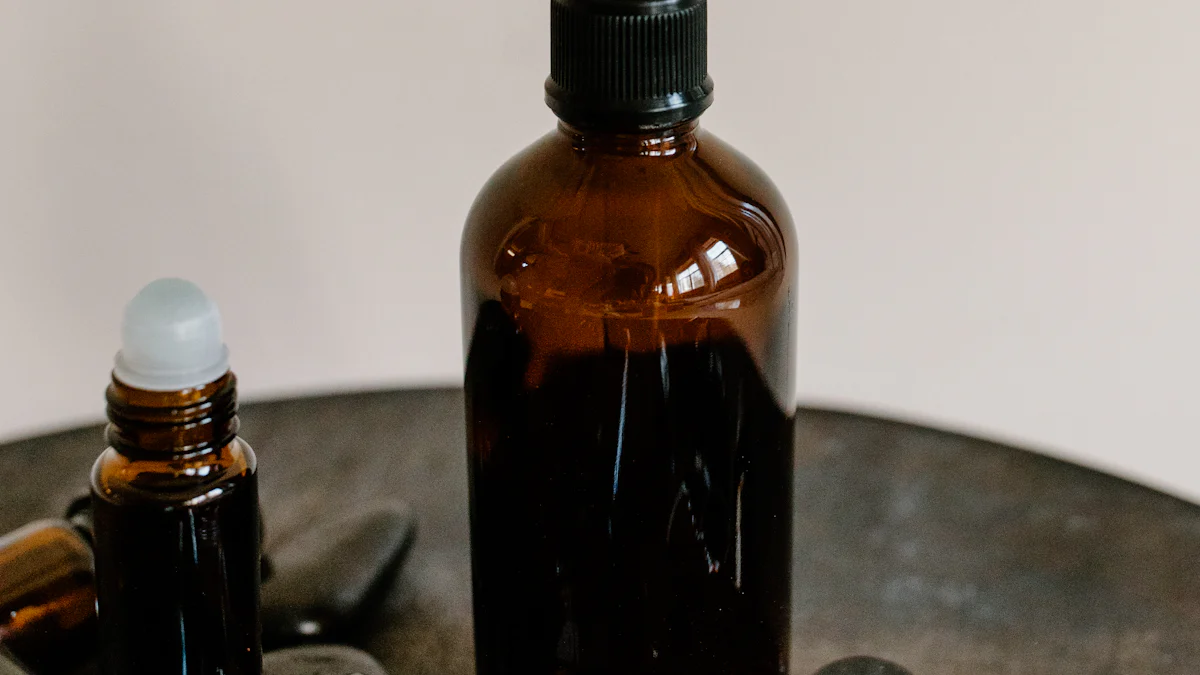Nasal congestion, or a “stuffy nose,” is more than just an annoyance—it can really mess with your daily life. You might find it hard to breathe, making simple tasks feel exhausting. Whether it’s from a cold, allergies, or sinus issues, nasal congestion can make sleeping, working, and enjoying your day difficult. In fact, about 12% of people in the U.S. deal with nasal congestion regularly. If you’re one of them, knowing what causes it and how to treat it can help you feel better and breathe easier.
What is Nasal Congestion?
When your nose is congested, it’s not just about difficulty breathing. You might also have headaches, sinus pressure, or trouble sleeping. In severe cases, congestion can lead to issues like ear pain or infections. Let’s explore the main causes of nasal congestion and what you can do to relieve it.
Nasal congestion happens when the tissues inside your nose become swollen, often because they’re filled with extra fluid. This swelling blocks airflow, making it feel like your nose is stuffed up or blocked. The causes can range from the common cold to seasonal allergies, and the symptoms can last anywhere from a few days to weeks depending on the underlying issue.
Treat your nasal congestion today!
Book an appointment and let us help you find the cause of your nasal congestion and treat it the right way.
What Causes Nasal Congestion?
Understanding why you’re congested is key to finding the right treatment. Here are some common causes:
- Allergies: If you’re allergic to things like pollen, dust, or pet dander, your body releases chemicals that cause inflammation in your nasal passages. This is one of the leading causes of nasal congestion and is why your nose might feel itchy and blocked during allergy season or after exposure to allergens.
- The Common Cold: When you catch a cold, your body responds by inflaming the nasal passages to fight off the virus. This inflammation causes your nose to swell and produce mucus, making you feel stuffed up.
- Sinus Infections (Sinusitis): Sinus infections occur when your sinuses become inflamed, often due to an infection. This can lead to ongoing nasal congestion, sinus pressure, and thick mucus.
- Hormonal Changes: Hormonal shifts, such as those during pregnancy, can increase blood flow to the nasal tissues, leading to congestion. Even certain medications or hormonal imbalances can contribute.
- Environmental Factors: Dry air, pollution, and irritants like cigarette smoke can trigger congestion by irritating the nasal passages. If you live in a dry or heavily polluted area, you may notice that your congestion is worse in certain environments.
- Structural Issues: Sometimes, physical problems in your nose, like a deviated septum or nasal polyps, can block airflow and cause chronic congestion.
Symptoms of Nasal Congestion
The most obvious symptom of nasal congestion is a stuffy nose. But it can also come with other problems:
- Difficulty Breathing: When your nasal passages are swollen, it might be hard to breathe through your nose. You may find yourself breathing through your mouth more often, which can dry out your throat.
- Sinus Pressure: Congestion often leads to a feeling of pressure around your forehead, eyes, and nose, making you feel uncomfortable or even giving you a headache.
- Runny Nose: In some cases, your nose may not just be stuffed—it might also run constantly as your body tries to clear out whatever is causing the irritation.
Understanding these causes and symptoms can help you identify what’s triggering your nasal congestion. Whether it’s a pesky cold or seasonal allergies, knowing the root cause is the first step toward finding relief.

Treatment of nasal congestion
At Pikes Peak ENT & Allergy, we prioritize patient-centered care, ensuring that every treatment plan is tailored to meet your unique needs. Our goal is to not only address the symptoms but to help you understand the underlying causes of your nasal congestion. Whether it’s through non-invasive home remedies or more advanced medical treatments, we aim to provide you with solutions that are both effective and compassionate. We believe that empowering you with knowledge is key to improving your quality of life, and we’re here to guide you every step of the way as you find relief from nasal congestion.
Non-Invasive / Medication Solutions
When nasal congestion strikes, you might feel like you’re stuck in a fog. But don’t worry, there are plenty of non-invasive solutions to help you breathe easier. Let’s explore some simple remedies and lifestyle changes that can make a big difference.
- Home Remedies: Home remedies offer a natural way to tackle nasal congestion. You can try these easy methods right at home.
- Steam Inhalation: Steam inhalation is a classic remedy for nasal congestion. It works by loosening mucus and reducing inflammation in your nasal passages. To try it, boil some water and pour it into a bowl. Lean over the bowl with a towel over your head to trap the steam. Breathe deeply for about 10 minutes. This method can provide quick relief and help you feel more comfortable.
- Saline Nasal Spray: Saline nasal sprays are another effective home remedy. They help moisten your nasal passages and thin out mucus, making it easier to breathe. You can buy saline sprays at most drugstores or make your own by mixing salt and warm water. Use the spray several times a day to keep your nasal passages clear and reduce congestion.
- Lifestyle Adjustments: Making a few lifestyle adjustments can also help manage nasal congestion. These changes can improve your overall comfort and well-being.
- Humidifiers: Humidifiers add moisture to the air, which can ease nasal congestion. Dry air can irritate your nasal passages and make congestion worse. By using a humidifier, especially in your bedroom, you can keep the air moist and reduce irritation. This can help you breathe more easily, especially at night.
- Hydration: Staying hydrated is crucial when dealing with nasal congestion. Drinking plenty of fluids helps thin mucus, making it easier to clear from your nasal passages. Water, herbal teas, and clear broths are excellent choices. Avoid caffeinated or alcoholic beverages, as they can dehydrate you and worsen congestion.
By incorporating these non-invasive solutions into your routine, you can find relief from nasal congestion. Whether it’s through steam inhalation, saline sprays, or lifestyle changes, these methods can help you breathe easier and feel better.

Over-the-Counter Medications
When nasal congestion becomes a persistent problem, over-the-counter medications can offer relief. These medications are easily accessible and can help you breathe easier by reducing swelling and controlling allergy symptoms. Let’s explore some popular options.
- Decongestants: Decongestants work by shrinking the swollen blood vessels in your nasal passages. This action reduces congestion and improves airflow, making it easier for you to breathe.
- Oral Decongestants: Oral decongestants come in pill or liquid form. They target nasal congestion by reducing the swelling in your nasal tissues. You might find them helpful if you’re dealing with a stuffy nose due to a cold or allergies. However, it’s important to follow the dosage instructions carefully. Overuse can lead to side effects like increased heart rate or insomnia.
- Nasal Sprays: Nasal sprays provide direct relief by delivering medication right to the source of congestion. They work quickly to reduce swelling and open up your nasal passages. While effective, you should use them sparingly. Prolonged use can lead to a rebound effect, where congestion worsens once you stop using the spray.
- Antihistamines: Antihistamines are another option for managing nasal congestion, especially if allergies are the culprit. They block histamines, which are chemicals your body releases during an allergic reaction.
Prescription Treatments
- Nasal Corticosteroids: Nasal sprays such as nasal corticosteroids are one option that your doctor might suggest to help relieve nasal congestion and help you feel your best.
- Leukotriene Inhibitors: Leukotriene inhibitors are another option for managing nasal congestion, especially if allergies are a contributing factor. These medications block chemicals in your body that cause inflammation. By doing so, they help reduce swelling in your nasal passages. Your doctor might prescribe them if you have allergic rhinitis or asthma.
- Combination Therapies: Combination therapies can be effective for stubborn nasal congestion. These treatments often include a mix of medications, such as antihistamines and decongestants, to tackle multiple symptoms at once. Your doctor will tailor the combination to your specific needs, ensuring you get the most benefit with minimal side effects.
Prescription treatments can be a game-changer for those struggling with chronic nasal congestion. By working closely with your healthcare provider, you can find the right solution to help you breathe easier and improve your quality of life.
Surgical Options
In cases where nasal congestion is caused by structural issues like chronic sinusitis, deviated septum or nasal polyps, surgery may be necessary. Procedures such as septoplasty or endoscopic sinus surgery can help correct these issues, allowing for better airflow and long-term relief.

When to See a Doctor
Sometimes, nasal congestion doesn’t go away on its own. You might wonder when it’s time to seek professional help. Knowing when to see a doctor can make a big difference in managing your symptoms effectively.
- Persistent Symptoms: Nasal congestion that lingers can be more than just a nuisance. It might signal a need for medical attention.
- Duration Concerns :If your nasal congestion lasts more than a couple of weeks, it’s time to consult a healthcare provider. Persistent symptoms could indicate an underlying issue that requires treatment. You shouldn’t have to suffer through endless days of stuffiness and discomfort.
- Associated Symptoms: Pay attention to other symptoms accompanying your nasal congestion. If you experience high fever, green or bloody nasal discharge, or severe headaches, these could be signs of a more serious condition. Don’t hesitate to reach out to a doctor if you notice these symptoms. They can help determine the cause and recommend appropriate treatment.
- Underlying Conditions: Sometimes, nasal congestion is a symptom of a deeper problem. Identifying these conditions early can lead to better outcomes.
- Chronic Sinusitis: Chronic sinusitis occurs when your sinuses remain inflamed for an extended period. This condition can cause ongoing nasal congestion, facial pain, and pressure. If you suspect chronic sinusitis, a specialist like those at Pikes Peak ENT, Allergy and asthma (experts in allergy and sinus issues), can provide valuable insights and treatment options.
- Nasal Polyps: Nasal polyps are non-cancerous growths in the nasal passages that can lead to persistent congestion. They often require medical intervention to manage. If you suspect nasal polyps, consulting an allergy specialist (for non-surgical options) or an ENT specialist is crucial. They can assess your condition and recommend treatments to help you breathe easier.
Recognizing when to seek medical advice can help you address nasal congestion more effectively. Whether it’s due to persistent symptoms or underlying conditions, getting the right diagnosis and treatment can significantly improve your quality of life.
Take Control of Your Health with Personalized Care
Book an appointment today and let us help you breathe easier, hear better, and live more comfortably with our expert ENT, allergy and asthma care
Summary
You’ve explored a variety of solutions to tackle nasal congestion, from simple home remedies to prescription treatments. Each approach offers unique benefits, helping you breathe easier and improve your quality of life. If you’re struggling with persistent symptoms, don’t hesitate to seek professional help from our nasal congestion specialists.
Sources
- Patient-reported outcome measures for adult chronic rhinosinusitis: A systematic review and quality assessment. .Journal of Allergy and Clinical Immunology, Volume 136, Issue 6, 1532 – 1540.e2
- Intranasal Corticosteroid Therapy: Systematic Review and Meta-analysis of Reported Safety and Adverse Effects in Adults. Otolaryngol Head Neck Surg. 2020 Dec;163(6):1097-1108.
- Treating acute rhinitis and exacerbations of chronic rhinitis – A role for topical decongestants? S Afr Fam Pract (2004). 2020 Mar 24;62(1):e1-e5.
- Nasal obstruction as a risk factor for sleep-disordered breathing. The University of Wisconsin Sleep and Respiratory Research Group. J Allergy Clin Immunol. 1997 Feb;99(2):S757-62.
- Symptoms of chronic rhinosinusitis differentially impact general health-related quality of life. Rhinology. 2016 Dec 1;54(4):316-322.
- Effectiveness of steam inhalation and nasal irrigation for chronic or recurrent sinus symptoms in primary care: a pragmatic randomized controlled trial. CMAJ. 2016 Sep 20;188(13):940-949. doi: 10.1503/cmaj.160362. Epub 2016 Jul 18.
- Evidence-based use of antihistamines for treatment of allergic conditions. Annals of Allergy, Asthma & Immunology, Volume 131, Issue 4, 412 – 420
- Nasal Septal Deviation: A Comprehensive Narrative Review. Cureus. 2022 Nov 10;14(11):e31317.


